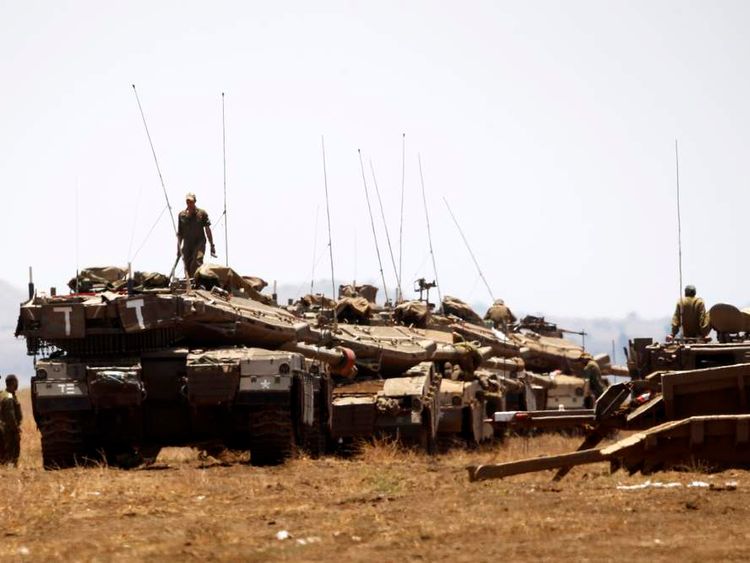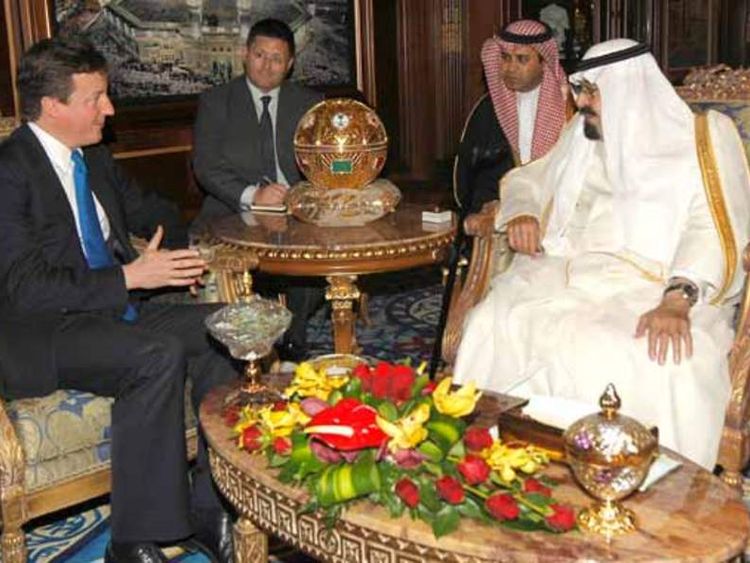Britain has sold industrial materials to Syria that could have been used to make chemical weapons, according to a new report by MPs on arms sales.
The Commons Committees on Arms Export Controls (CAEC) said it was just one example of numerous questionable deals between UK contractors and countries the Foreign Office (FCO) deems to have poor human rights records.
The CAEC said supplies of sodium fluoride, which could be used to make chemical weapons, were sent to Syria in the last couple of years.
Sodium fluoride is a legitimate component of a number of civilian products including toothpaste, but there is no way of knowing what it was used for in the end.
MPs have fired a warning shot across the Government's bows, questioning the checks made on more than 3,000 export licences worth over £12bn to 27 countries on the FCO's own list of countries of human rights concern.
While the CAEC acknowledged many of the licences were for dual-use (military or civilian) items or other equipment which could not readily be used for "internal repression", the MPs said the numbers were still "surprisingly large".
The biggest chunk of the £12bn comes from Israel, which accounts for £7.8bn.
The Saudis are next, with close to £1.9bn, and China is third, with almost £1.4bn.
The UK also has licences to sell arms to Iran, Egypt and Syria among many others.
"The scale of the extant strategic licences to the Foreign Office's 27 countries of human rights concern puts into stark relief the inherent conflict between the Government's arms exports and human rights policies," said CAEC chairman Sir John Stanley.
"The committees adhere to their previous recommendation that the Government should apply significantly more cautious judgements when considering arms export licence applications for goods to authoritarian regimes 'which might be used to facilitate internal repression' in contravention of the Government's stated policy."
Labour MP Richard Burden, who chairs the Britain-Palestine All Party Parliamentary Group, said the amount going to Israel was "astonishing".
"What is most striking is that over half of the total is going to 'Israel and the Occupied Palestinian Territories'," he said.
"Look a little closer and you see that almost all of those exports are going to Israel, with only £5,539 going to the Occupied Territories.
"Look closer still and you see something utterly astonishing - 380 different licences have been granted for exports of arms and military equipment to Israel.
"However, £7,765,450,000 of the £7.8bn worth of equipment exported to Israel is covered by just one licence approval - for equipment employing cryptography and software for equipment employing cryptography.
"This is bizarre, particularly as there are scores of other licences granted for export of cryptography equipment and software which have a substantial value - but still only add up to a tiny fraction of this amount.
"I am tabling questions to the minister today to find out just what this licence was all about. Is just one company involved? Why does the scale of this licence dwarf all others with similar titles? What does the contact actually involve?"
Prime Minister David Cameron has made no secret of his desire to push British defence sales and has led missions to India, the Gulf and Saudi Arabia to try and bring in multimillion-pound deals, even though Saudi Arabia is among the states on the concern list from the Foreign Office.
As well as Saudi Arabia, the FCO's concern list comprises Afghanistan, Belarus, Burma, China, Colombia, Cuba, North Korea, the Democratic Republic of Congo, Eritrea, Fiji, Iran, Iraq, Israel and the Occupied Palestinian Territories, Libya, Pakistan, Russia, Somalia, South Sudan, Sri Lanka, Sudan, Syria, Turkmenistan, Uzbekistan, Vietnam, Yemen and Zimbabwe.
Argentina is one of five additional countries about which the CAEC has raised concern - the others are Bahrain, Egypt, Madagascar and Tunisia.
The arms business allows nations to buy diplomatic and political clout by selling weapons and technology whilst at the same time protecting hundreds of thousands of jobs back home.
But the problem it seems from this latest report is making sure it is known who is getting their hands on that technology in the end.
A Department for Business, Innovation and Skills spokesman said the Government "operates one of the most rigorous arms export control regimes in the world".
"An export licence would not be granted where we assess there is a clear risk the goods might be used for internal repression, provoke or prolong conflict within a country, be used aggressively against another country or risk our national security," he said.
"All licences highlighted in the committees' report were fully assessed against a range of internationally agreed stringent criteria which take into account the circumstances at the time the licence application was made.
"When circumstances change or new information comes to light we can - and do - revoke extant licences where the proposed export is no longer consistent with the criteria."
Amnesty International's arms control expert Oliver Sprague has called for greater transparency.
"Looking at these, the Government's own figures, it would be hard not to conclude that the UK Government's arms sales practices are at odds with its stated policy not to send weapons to anywhere that poses a clear risk that they could be used for human rights violations," he said.
"What is needed now is an urgent explanation of what these licences were actually for, who was going to use them and what assurances were in place to ensure they were not going to be used for human rights violations.
"Until there is much greater transparency over exactly what we are selling and to whom, it will be impossible for Parliament or the public to have confidence in the UK's arms sales policies."





Geen opmerkingen:
Een reactie posten